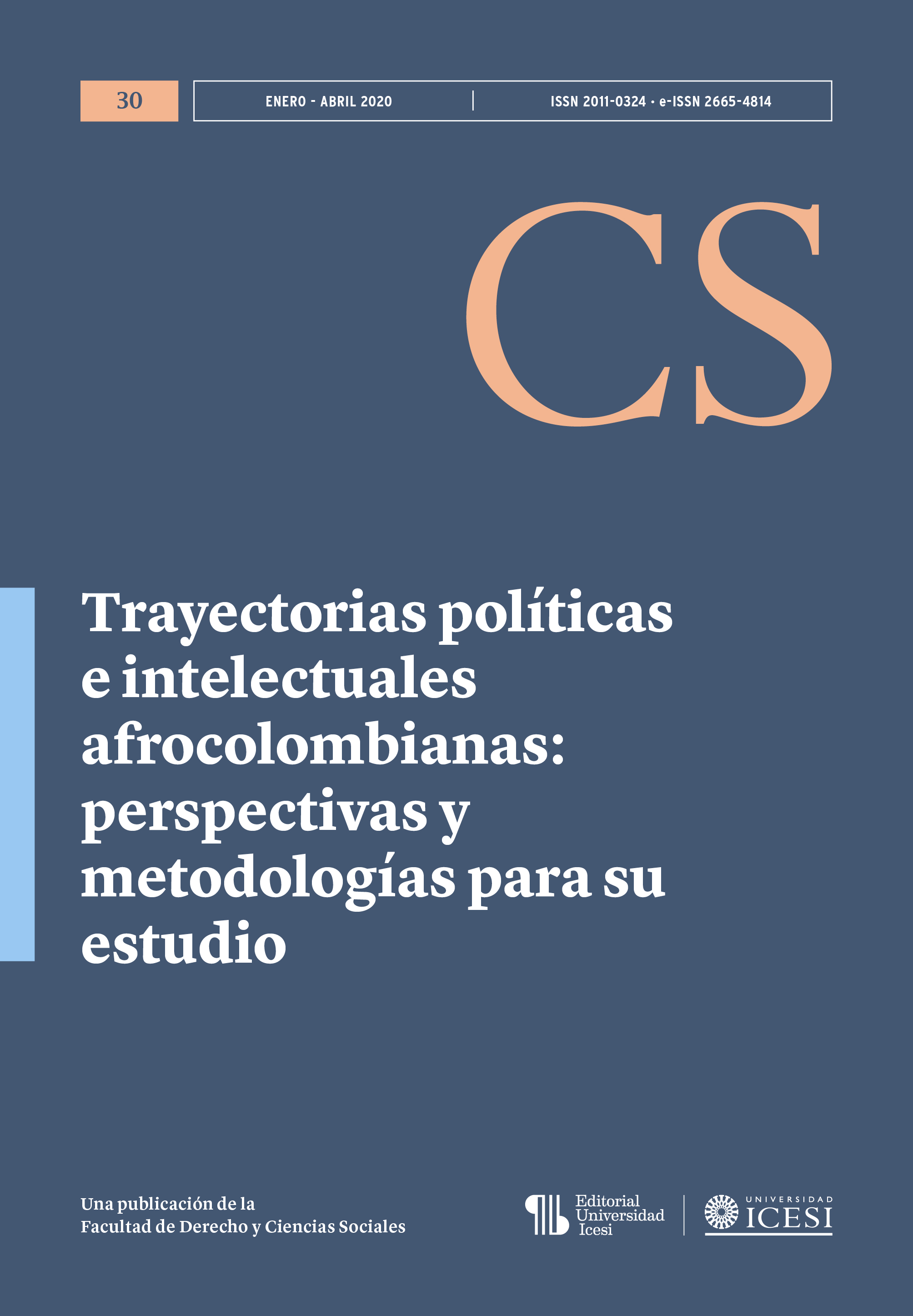Between Identity and Commitment: A Biopolitical Approach to Manuel Zapata Olivella’s He visto la noche
DOI:
https://doi.org/10.18046/recs.i30.3189Keywords:
Biopolitics, Negritudes, Manuel Zapata Olivella, Colombian Novel, Twentieth Century LiteratureAbstract
As an aesthetic expression, literature does not escape the influence of power assumed as a form of social control. In this sense, it is worth wondering how works written by authors not consecrated by the intellectual and economic elites assume and explain the onslaught of hegemonic discourses that exclude, homogenize and consolidate monological discourses. Theoretically, it will be the biopolitics, a concept proposed by Michel Foucault in 1978, the one that best explains the relationship between subject, society and power that this text by Manuel Zapata Olivella proposes from a trip to the United States.
Downloads
References
Aguilera-Portales, Rafael (2010). Biopolítica, poder y sujeto en Michel Foucault. Revista de Filosofía, Derecho y Política, 11, 27-42.
Bhabha, Homi K. (1996). Culture’s In-Between. En Questions of Cultural Identity (pp. 53-60), editado por Stuart Hall; Paul du Gay. North Yorkshire: Sage Publications.
Bloom, Harold (1994). El canon occidental. La escuela y los libros de todas las épocas. Barcelona: Anagrama.
Foucault, Michel (1979). Microfísica del poder. Madrid: La Piqueta.
Foucault, Michel (1987). Historia de la sexualidad 1. La voluntad de saber. México: Siglo XXI.
Grossberg, Lawrence (2004). Entre consenso y hegemonía: notas sobre la forma hegemónica de la política moderna. Carolina del Norte: University of North Carolina.
Hall, Stuart (2000). ¿Quién necesita la identidad? En En los márgenes de la educación. México a finales de milenio (pp. 27), coordinado por Rosa Nidia Buenfil. México: PyV/SADE.
Jünger, Ernst (2002). La emboscadura. Barcelona: Tusquets.
Lawo-Sukan, Alain (2011). (A)cercamiento al concepto de la negritud en la literatura afro-colombiana. Texas: Texas University.
Morales-Padrón, Francisco (1983). América en sus novelas. Madrid: Cultura Hispánica del Instituto de Cooperación Iberoamericana.
Navarrete-Cazales, Zaira (2008). Construcción de una identidad profesional: los pedagogos de la Universidad Nacional Autónoma de México y de la Universidad Veracruzana. Revista Mexicana de Investigación Educativa, XIII(36), 143-171.
Sartre, Jean-Paul (1950). ¿Qué es la literatura? Buenos Aires: Losada.
Todorov, Tzvetan (1991). Crítica de la crítica. Barcelona: Paidós.
Valderrama, Carlos A. (2016). Intelectualidad crítica afrocolombiana: la negredumbre en el pensamiento intelectual de Rogerio Velásquez Murillo. Bogotá: Universidad Central.
Valero, Silvia (2013). ¿De qué hablamos cuando hablamos de “literatura afrocolombiana”? O los riesgos de las categorizaciones. Medellín: Universidad de Antioquia.
Viñas-Piquer, David (1955). Benito Lynch: la realización del Facundo. Contorno, 5-6, 16-21.
Zapata-Olivella, Manuel (1968). He visto la noche. Medellín: Bedout.
Zapata-Olivella, Manuel (1997). La rebelión de los genes. El mestizaje americano en la sociedad futura. Bogotá: Altamira.
Downloads
Published
Issue
Section
License
Copyright (c) 2020 Alejandro Alzate

This work is licensed under a Creative Commons Attribution-NonCommercial 4.0 International License.
© Reserved Copyright
Material in this publication may be reproduced without authorization, provided the title, author and institutional source is acknowledged.
The content published in Revista CS is distributed under the Creative Commons BY-NC 4.0 Attribution/Recognition-NonCommercial 4.0 International license.
You are free to:
Share — copy and redistribute the material in any medium or format.
Adapt — remix, transform, and build upon the material.
Under the following terms:
Attribution — You must give appropriate credit , provide a link to the license, and indicate if changes were made . You may do so in any reasonable manner, but not in any way that suggests the licensor endorses you or your use.
NonCommercial — You may not use the material for commercial purposes.












